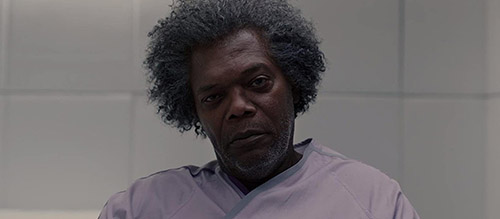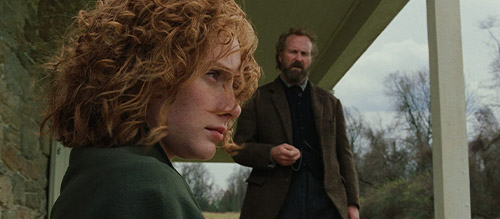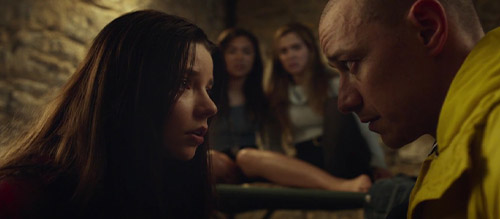M. Night Shyamalan Directed Movies Ranked
6. Glass (2019)
When Shyamalan returned to his Unbreakable universe with pseudo-sequel Split in 2016, fans of the original 2000 release clamoured for more, noting the filmmaker’s subtlety at not using Unbreakable in any of Split’s marketing campaigns as a reason to have faith that a third movie would more than deliver.
While Glass was good, it was much more divisive than the previous two films in the trilogy, with much of its criticism taking aim at its twist – a quality of Shyamalan’s writing that is either his greatest asset or his Achilles heel depending on the release. While said twist was entirely in-keeping with the universe Shyamalan had set up – and should be praised for subverting the norms of the comic book-inspired movies that have dominated 21st century cinema – the Glass finale wasn’t necessarily divisive because of how it was underwhelming to some and featured very little by the way of typical fantasy-action, but more because it didn’t work to satisfactorily encompass the drama of Unbreakable or the horror elements of Split and instead met somewhere in the middle, turning off fans of both.
Despite two hugely enjoyable films leading into this release, Glass didn’t have to deal with the same level of expectation that the next film in our list did, and it benefitted from our understanding that Shyamalan was playing out his own comic book lore for our enjoyment.
Glass isn’t quite Unbreakable or Split, but this film does a fine job in concluding its trilogy.
5. The Village (2004)
The level of acting talent that signed on to work on The Village is proof as to how much faith Hollywood had in M. Night Shyamalan going into his 2004 release.
A cast including Joaquin Phoenix, Adrien Brody, Sigourney Weaver, William Hurt, Michael Pitt, Brendan Gleeson, Judy Greer and Jesse Eisenberg was headlined by the director’s first collaboration with would-be Jurassic World star and Lady in the Water lead Bryce Dallas Howard, Shyamalan ensuring that every frame was filled with the kind of gravitas his work until this point was very much deserving of.
Having earned himself a reputation as “the guy who writes twists”, anticipation for the likely twist in The Village was as much a part of the appeal of the film as the stellar ensemble, and this is where things began to head south for Shyamalan. The screenwriter-director’s twist in The Village was divisive to say the least, and a less than great critical response to the film ensured that Shyamalan began to be tagged with the phrase “one trick pony” for the first time.
While elements of The Village were spectacular and it was clear that Shyamalan was still enjoying his work at this stage (which certainly wasn’t the case for the decade to follow), the moniker of being a successor to the likes of Steven Spielberg began to wear thin, this film acting as a blow that would unsteady the Shyamalan ship heading into the much more problematic Lady In the Water and would ultimately act as the catalyst for the temporary derailing of his career.
Recommended for you: John Carpenter Movies Ranked
4. Split (2016)
The major narrative twist in Split was that the film took place in the same cinematic universe as Shyamalan’s other super-powered outing Unbreakable, and this proved satisfying in two ways. Firstly, a long-awaited sequel to the lauded 2000 superhero movie was one that fans of the film had waited over 15 years for. Secondly, it ensured that Split was a well-wrapped narrative in of itself and one of the first original screenplays of Shyamalan’s career that wasn’t entirely reliant upon the narrative device in its third act – the story wrapping up entirely before the big reveal.
These two factors, and the fact that Shyamalan never once even hinted towards Split being connected to Unbreakable in any of the material leading up to the film’s release (including in the marketing, which could have boosted opening weekend ticket sales), made Split one of those very rare occasions in cinema where the art and suspected fan reaction was more valuable to the creator/s than immediate profitability, and it truly felt like Shyamalan was giving back to those who had become such huge fans of his career in the first place.
As a standalone piece, Split was effective enough to draw new fans into its universe ahead of the release of Glass a few years later, Shyamalan revisiting horror tropes and ideas of the supernatural to capture an alternative to horror movies and superhero films of the time while simultaneously managing to cater to both – an aspect he couldn’t mimic for Glass.
Anchored by one of the most recognisable and universally praised performances of the decade from leading star James McAvoy, and focusing on the kind of story that brought about investment without necessarily proving to be too preachy, Split was like watching lightning in a bottle, its twist reveal proving to be as exciting as any Marvel post-credits scene.




